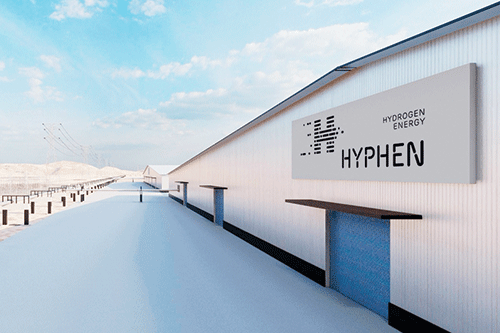Green hydrogen commissioner James Mnyupe said it is premature to single out the potential impact of any specific project.
This is in response to a Namibia Chamber of Environment (NCE) study criticising any proposed hydrogen development in the Tsau //Khaeb National Park (TKNP).
This, he said, is because a Strategic Environmental and Social Assessment (SESA) as well as a project-level Environmental and Social Impact Assessment (ESIAs) will have to be concluded on biodiversity, ecosystems and socio-economic development in the area.
Mnyupe gave the assurance that the environment ministry will oversee the development of SESA for the entire Southern Corridor Development Initiative (SCDI) or Southern Valley, which includes the //Tsau Khaeb National Park.
“The primary strength of a SESA lies in its consideration of alternatives and its integrated perspective on the target area, biodiversity, ecosystems and the (cumulative) impacts of ongoing, existing and potential new developments.
There are multiple known and yet-to-be-discovered competing or synergistic land uses that will need to be considered and managed carefully as guided by the SESA,” he noted.
He said the SESA is expected to provide the government with guidance from both biodiversity and socio-economic development perspectives.
Furthermore, there is a government commitment to utilise the SESA findings to inform, guide and harmonise further implementation and policymaking in the SCDI, which is likely to experience rapid growth and expansion.
To date, the government has noted the park is already hosting or planning to host tourism concessions, the Lüderitz town expansion, Kudu Gas-to- Power plant, independent power producers, NamPower wind power generation projects, existing and prospective mining activity, onshore service bases for the oil and gas sector, and the green hydrogen projects and related supporting infrastructure.
Mnyupe’s comments came after the NCE criticised any proposed hydrogen development in the Tsau //Khaeb National Park (TKNP).
The chamber argues that the TKNP is a globally-significant biodiversity hotspot, and one of the world’s largest near-pristine wildernesses.
“The extensive industrial development planned for one of the world’s few arid biodiversity hotspots could only produce ‘red’ hydrogen, as it would threaten the persistence of many endemic plant and animal species,” reads the study they released this week.
The chamber is a membership-based and driven umbrella organisation, established as a voluntary association under Namibian common law to support and promote the interests of the environmental non-governmental organisations’ sector and its work.
Hyphen successfully bid on and was awarded preferred bidder status on about
4 000 square kilometres of land within the Tsau //Khaeb National Park for the development of Namibia’s first fully vertically-integrated GW-scale green hydrogen project.
The project is being lauded as the first stage in implementing the government’s policy for the creation of a large-scale green hydrogen industry in various regions of Namibia to support economic growth and global decarbonisation ambitions.
This US$10 billion Hyphen project is expected to be completed in phases, with a full development objective of
350 000 metric tonnes of green hydrogen production per year.
Once completed, the project will employ an estimated 3 000 people, with
15 000 construction jobs supported over four years.
Over 90% of these positions are projected to be filled by Namibians.
However, the chamber, in its study, opposed any climate change mitigation plan whixh increases threats to biodiversity.
“A full strategic environmental assessment (SEA) must be conducted transparently, and reviewed by independent experts for the long-term hydrogen development plans prior to Environmental and Social Impact Assessments for the Hyphen project. Alternative sites for producing hydrogen which support the local economy and have the potential to drive national manufacturing industries must be carefully considered within the SEA,” the chamber recommended.
The hydrogen developments in TKNP pose long-term worries regarding Namibia’s environmental legislation, policies and practices.
The concerned chamber stated that before considering a large-scale development, it is important to complete a SEA which considers the impact of the Hyphen project, as well as future developments that will benefit from its infrastructure.
Any hydrogen produced in the TKNP is correctly labelled as red hydrogen, since its production is likely to increase the threats to many species of plants and animals, as well as other endemic and lesser-known species that have yet to be evaluated.
“The European Union and a number of its member states, particularly Germany, should not export the costs of their energy requirements to developing countries such as Namibia, and must take necessary precautions and due diligence prior to supporting large development projects,” the chamber said in taking issue with the EU.


